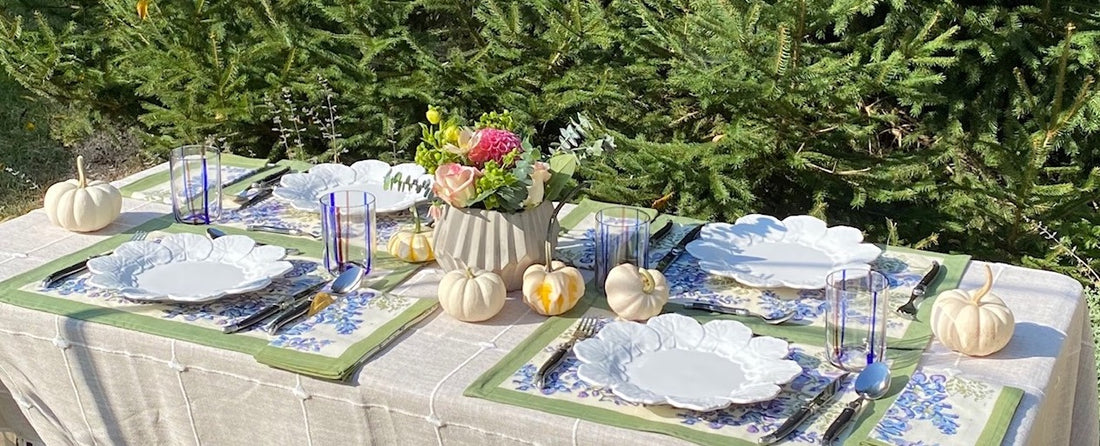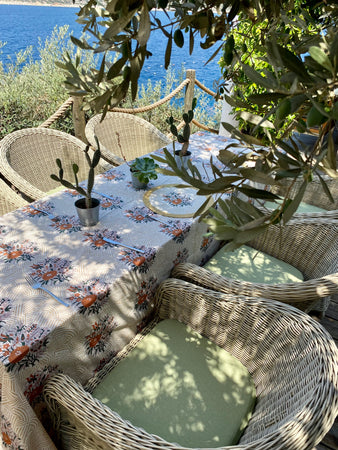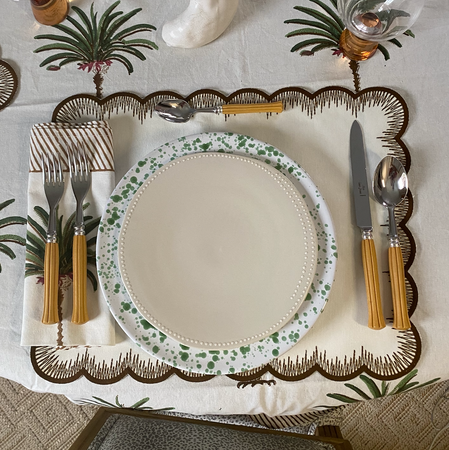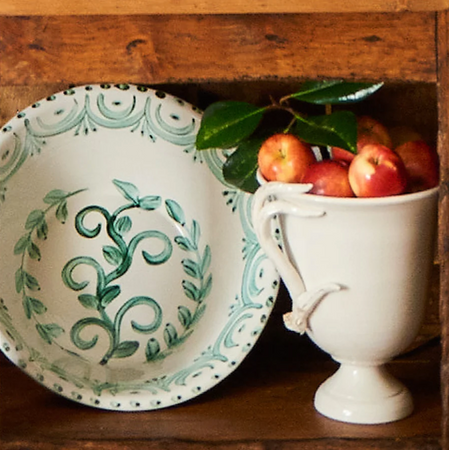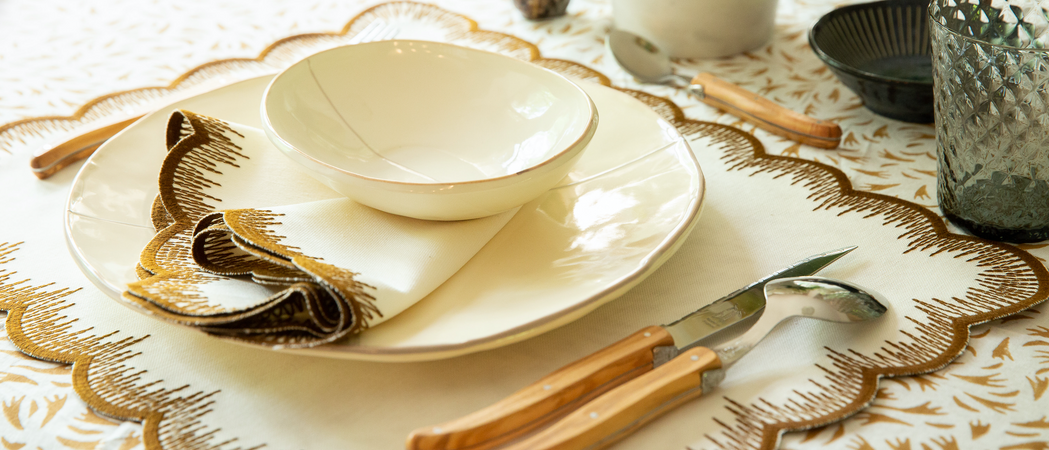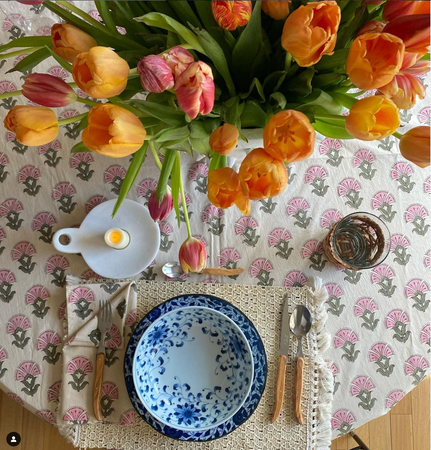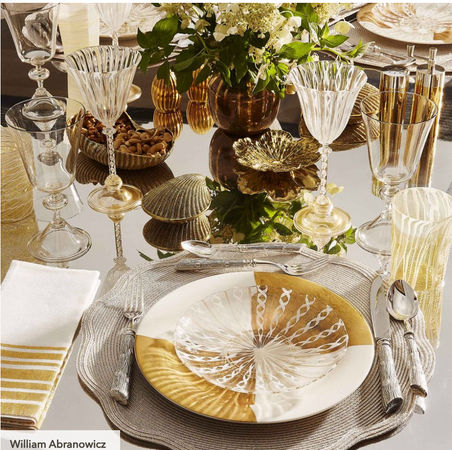Why Setting the Table is More Important Than Ever: A Deep Dive into Tradition, Connection, and Mindfulness
In our fast-paced, digitally-driven world, the art of setting the table represents a sanctuary of tradition, connection, and mindfulness. Amidst the hustle and bustle of modern life, taking the time to thoughtfully set a table transcends mere preparation for a meal; it becomes a deliberate act of creating space for togetherness, appreciation for the food we consume, and an opportunity to slow down and savor the moment. This article explores the multifaceted reasons why setting the table is more important than ever, offering a thousand-word journey into its significance.
Home life has risen to a new importance, a trend pushed by a number of factors. Covid-19 concerns have changed daily work, school, recreation and travel routines for many, resulting in people spending much more time at home. However, even before Covid-19’s social distancing and stress, people were returning to the dining table. They were returning to the delicious art of intimacy, to mindful eating of real food and to the comforting routines of yesteryear, understanding that setting the table is more important than ever.
A Tradition of Togetherness
Historically, dining together has been a foundational pillar of human society. From ancient feasts to contemporary family dinners, the act of sharing a meal is a universal language of hospitality and community. Setting the table is the physical manifestation of this tradition, a ritual that prepares the stage for communal experience. In today's world, where meals are often consumed in a rush or in isolation, dedicating time to set the table serves as a tangible reminder of the value of gathering with others. It signals a transition from the day's activities to a shared moment, inviting participants to leave behind distractions and engage fully with those around them.
Mindfulness in Every Detail
The practice of setting the table is inherently mindful. Selecting plates, arranging utensils, and folding napkins require attention to detail and a focus on the task at hand. This mindfulness promotes a sense of calm and preparation, transforming the mundane into a meditative practice. It allows the host to consider the preferences and needs of their guests, personalizing the experience and demonstrating empathy and respect. Furthermore, this mindfulness extends to the meal itself, encouraging a deeper appreciation for the food, its origins, and the effort involved in its preparation.
Passing on Traditions
In days past, the dining table was often where children learned the art of conversation, sharing the day’s happenings over dinner. Afternoon transitioned to evening with the setting of the table for dinner. In that intimate setting, family stories were told and retold, relationships built and traditions continued. With frenetic pace of life today, many people no longer dine. Instead, they just eat, in a rush, in the car, in front of a screen. That’s not healthy, physically, mentally or socially.
The Canvas of Connection
A thoughtfully set table is like a canvas, on which the meal and conversations will paint the evening's memories. Each element, from the choice of tableware to the arrangement of the seats, contributes to the ambiance and facilitates interaction. In a time when digital screens often dominate attention, the dining table becomes a rare zone of personal connection. By setting the table, hosts communicate care and intention, crafting an environment that encourages guests to connect, share stories, and build relationships. It's an invitation to be present, to listen, and to contribute to the collective experience.
Sustainability and Conscious Living
As awareness of environmental issues and sustainability grows, setting the table also reflects a broader consciousness about the impact of our choices. Opting for reusable tableware over disposable options, choosing sustainably sourced linens, hand made silverware, and decorating with natural elements are all practices that align with a more conscious approach to dining. This mindfulness towards sustainability not only reduces waste but also enriches the dining experience with a sense of purpose and respect for the environment.
Aesthetic and Sensory Experience
The visual and tactile elements of a well-set table contribute significantly to the overall dining experience. Color schemes, textures, and lighting all play a role in setting the mood, whether it's a casual brunch or a formal dinner. A beautiful table setting enhances the sensory experience of the meal, making the flavors seem more vibrant and the conversation more engaging. It's an expression of creativity and personal style, offering a unique opportunity to delight and surprise guests.
Cultural Significance and Education
Table setting practices vary widely across cultures, each with its own customs and etiquette. Engaging with these traditions can be a form of cultural education, fostering a deeper understanding and appreciation for the diversity of human expression. For families, teaching children how to set the table is not only a practical skill but also an introduction to cultural norms, manners, and the importance of contributing to household activities. It's a simple yet effective way to pass down traditions, proper dining etiqutte, and values from one generation to the next.
The Psychological Benefits
Beyond its social and aesthetic aspects, setting the table can have tangible psychological benefits. It creates a sense of anticipation and celebration, turning an ordinary meal into a special event. This act of preparation can elevate everyday life, providing a sense of achievement and satisfaction. Moreover, the structure and ritual of setting the table can offer comfort and stability, anchoring us in the present and providing a respite from the chaos of the outside world.
Conclusion: A Call to Rediscover the Table
In conclusion, the act of setting the table is a multifaceted ritual with deep roots in tradition and significant relevance in today’s fast-paced society. It's a call to slow down, to cherish the moments of togetherness, and to approach dining with mindfulness and creativity. As we navigate the challenges of the modern world, rediscovering the significance of this simple yet profound practice can help us reconnect with ourselves, with others, and with the world around us. So, as we gather around the table, let us remember that it's not just about the food we eat but also about the connections we forge, the traditions we keep alive, and the mindful presence we bring to every shared meal.
Every Meal Can Be An Occasion
Julie and Ev offer an exciting array of carefully sourced, beautifully crafted tableware, including exquisite handmade dinner plates, handblown Italian tumbler sets and French cutlery. Add to your dining experience with hand-painted plates. Make an Italian pottery vase filled with seasonal blooms a part of your table setting routine. Every meal time should feel like a special occasion, especially now.
Featured collection
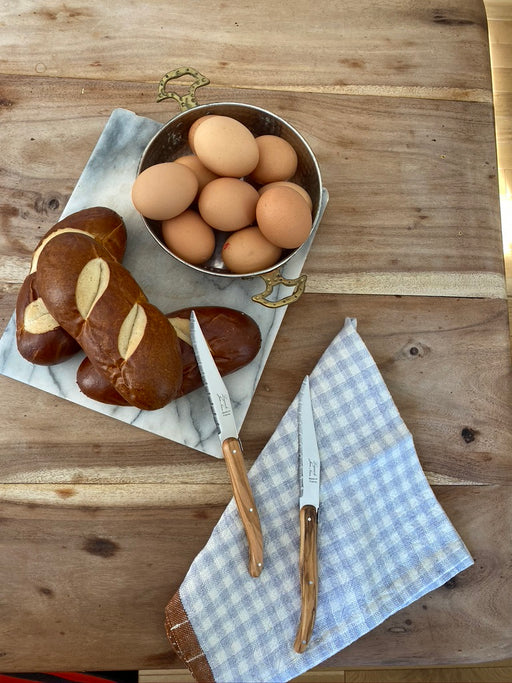

Jean Neron - Laguiole Olivewood Steak Knives in Wooden Presentation Box | 6 Pieces

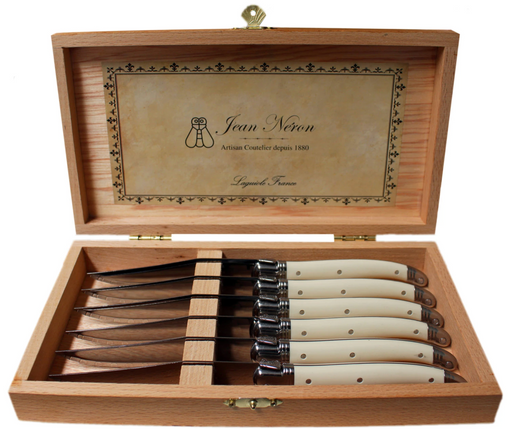
Laguiole Steak Knives Set in Wooden Box, Ivory Color
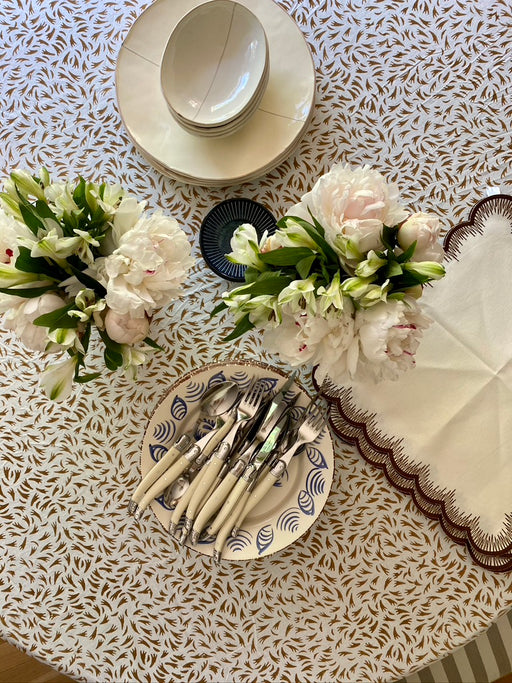

Laguiole Flatware Set in Presentation Box, Ivory Color (24-Piece Set )

Hammered Champagne Glasses-Clear with Gold Rim - Set of 4

Handblown Italian Glass, Blue (Set of 6)


Laguiole Platine Cake & Bread Set in Wooden Tray - Ivory

Hammered Wine Glasses - Clear with Gold Rim, Set of 4


Hammered Martini Glasses - Clear with Gold Rim, Set of 4


Laguiole Steak Knives Set in Wooden Box, Ivory Platine
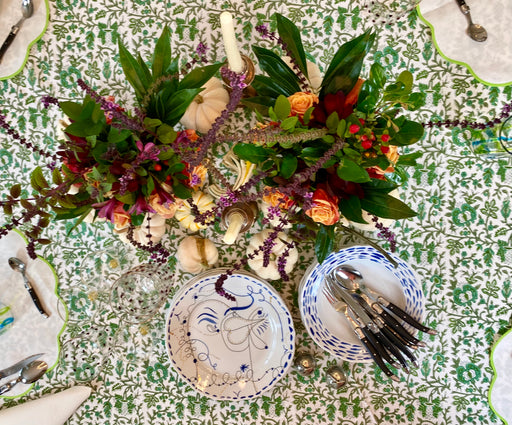

Laguiole Jean Neron 24-Piece Flatware Set in Wooden Box, Black


Jean Neron - Laguiole Olivewood Steak Knives in Wooden Presentation Box | 6 Pieces


Laguiole Steak Knives Set in Wooden Box, Ivory Color


Laguiole Flatware Set in Presentation Box, Ivory Color (24-Piece Set )

Hammered Champagne Glasses-Clear with Gold Rim - Set of 4

Handblown Italian Glass, Blue (Set of 6)


Laguiole Platine Cake & Bread Set in Wooden Tray - Ivory

Hammered Wine Glasses - Clear with Gold Rim, Set of 4


Hammered Martini Glasses - Clear with Gold Rim, Set of 4


Laguiole Steak Knives Set in Wooden Box, Ivory Platine




